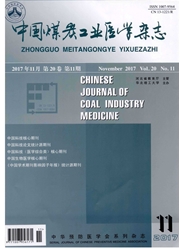

 中文摘要:
中文摘要:
目的探讨积极注意偏向与生活满意度的关系,并进一步探讨创伤后成长在其中的中介作用。方法通过方便取样,选取259名唐山大地震幸存者,被试完成《积极信息注意量表》、《生活满意度量表》以及《创伤后成长问卷》以及自编人口学资料问卷。数据采用SPSS19.0进行分析处理,采用的方法有描述性统计、皮尔逊积差相关以及回归分析。结果积极注意偏向、生活满意度以及创伤后成长各维度及总分间呈正相关(r=0.19-0.46,P〈0.001);创伤后成长完全中介积极注意偏向与生活满意度之间的关系。结论积极注意偏向通过创伤后成长影响唐山大地震幸存者的生活满意度。
 英文摘要:
英文摘要:
Objective To explore the relationship between valenced positive attention bias and life satisfaction,and further to investigate the mediating effect of posttraumatic growth.Methods A total of 259 Tangshan earthquake survivors completed the Attention to Positive and Negative Information Scale,Posttraumatic Growth Inventory,and Satisfaction with Life Scale and the self-made demographic information scale.The data were analyzed with descriptive statistics,Pearson product-difference correlation and regression analysis by SPSS19.0software.Results In deferent dimensions and even total scores,valenced positive attention bias,post-traumatic growth and life satisfaction were significantly correlated(r=0.19-0.46,P〈0.001);posttraumatic growth played a mediating role between valenced positive attention bias and life satisfaction.Conclusion Valenced positive attention bias can directly affect life satisfaction through posttraumatic growth indirectly.
 同期刊论文项目
同期刊论文项目
 同项目期刊论文
同项目期刊论文
 期刊信息
期刊信息
